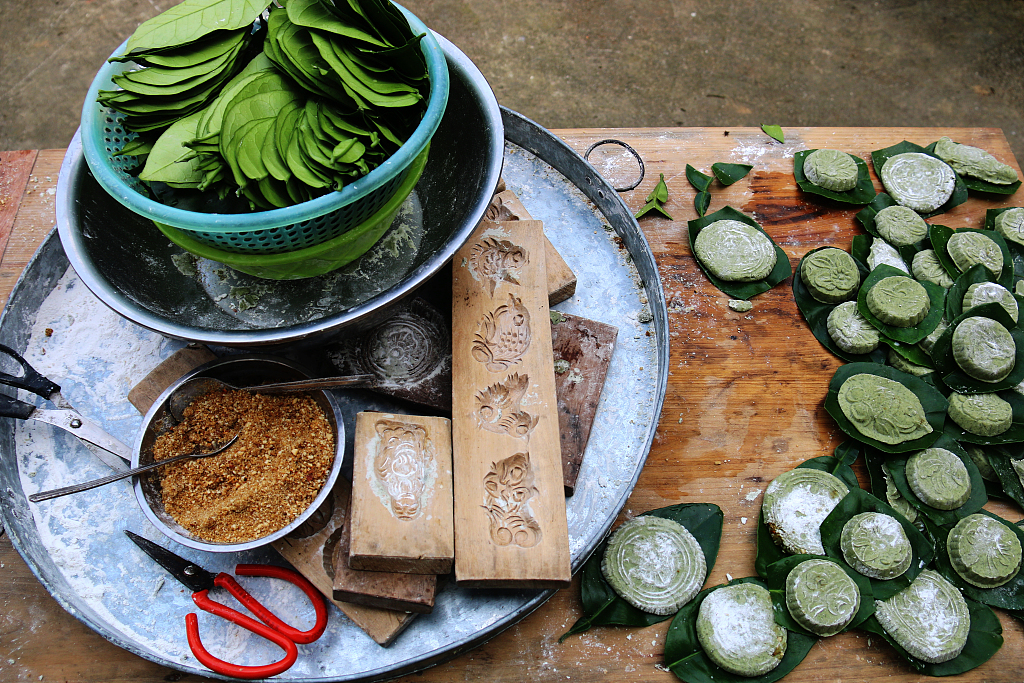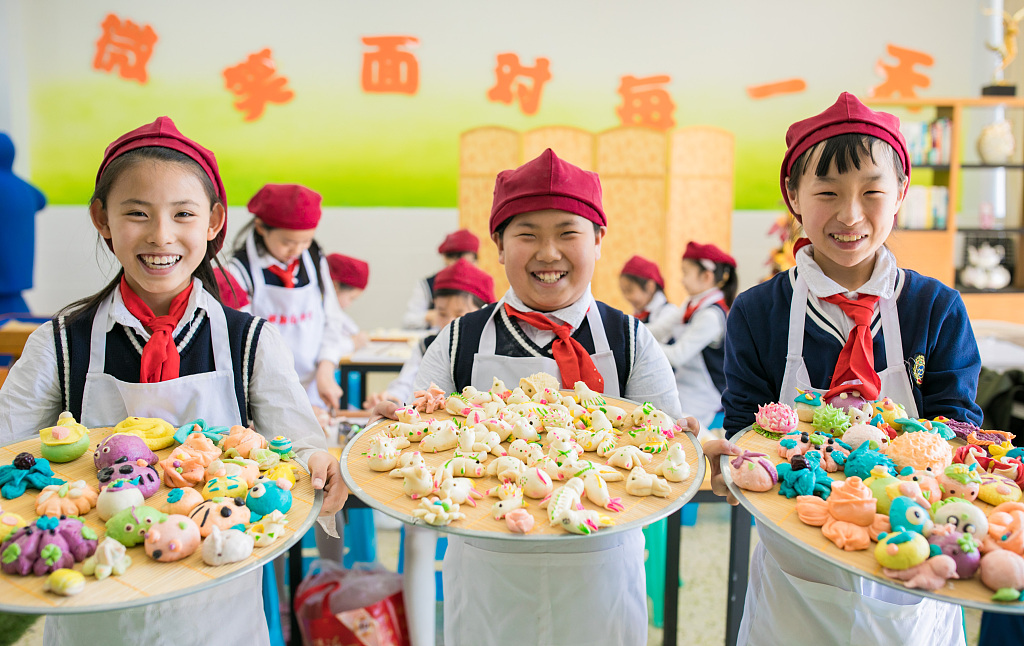April 4th marks China's Cold Food Day, when people are encouraged to avoid cooking with fire and are supposed to only eat cold food.

Glutinous rice cake mixed with wormwood juice is a popular snack in southern China on Cold Food Day. /CFP
Glutinous rice cake mixed with wormwood juice is a popular snack in southern China on Cold Food Day. /CFP
This is China's oldest festival based on written record. According to the encyclopedic dictionary "Cihai" and the ancient Chinese dictionary known as "Ciyuan," the festival's origin tale relates to the ancient official Jie Zitui and the Jin Duke Chong'er some 2,650 years ago.

Mianshan Mountain in north China's Shanxi is the place where Cold Food Day was first celebrated, and a museum has been set up there introducing this ancient festival. /CFP
Mianshan Mountain in north China's Shanxi is the place where Cold Food Day was first celebrated, and a museum has been set up there introducing this ancient festival. /CFP
Jin was a state during the Spring and Autumn Period, located where Shanxi Province now stands. Despite his princely status, Chong'er was forced to leave his homeland due to raging political turmoil. During Chong'er's 19 years in exile, the Jin official Jie Zitui loyally supported him and helped him to become the 22nd Duke of Jin. After that, Jie Zitui chose to live on Mianshan Mountain and refused to venture into society. As Chong'er was so eager to meet up with Jie Zitui, he ordered that the mountain be set ablaze to force his faithful servant to come out. However, three days later, Jie Zitui's corpse was found under a burnt willow tree.
Chong'er later regretted his rash behavior. To commemorate the loyal official, the Duke set aside the 105th day after the Winter Solstice as Cold Food Day, one day before the Qingming Festival.
Jie Zitui's loyalty to his master and lack of interest in wealth or status touched many political figures and common folk, and his day of remembrance gradually spread from Shanxi to the whole nation. During the Jin Dynasty (265-420 BC), Cold Food Day became a three-day holiday celebrated by the Han people nationwide.
Many customs associated with the festival have been passed down through generations, such as making cold porridge and eating cold noodles, steaming "hanyan" (colorful buns in the shape of swallows, flowers, fruit and animals), and inserting willow branches into the front gates of people's houses and on tombs.

Students from a primary school in Hohhot, Inner Mongolia show their culinary prowess at making "hanyan," a popular snack in northern China on Cold Food Day. /CFP
Students from a primary school in Hohhot, Inner Mongolia show their culinary prowess at making "hanyan," a popular snack in northern China on Cold Food Day. /CFP
The event also inspired ancient literati to record related customs and express their emotions and ideas about the festival. More than 300 poems from the Tang Dynasty (618-907 AD) and over 100 poems from the Song (960-1279 AD) and Yuan (1279-1368 AD) dynasties mention the Cold Food Festival. The story of Jie Zitui has also been put on the stage since the Yuan Dynasty.